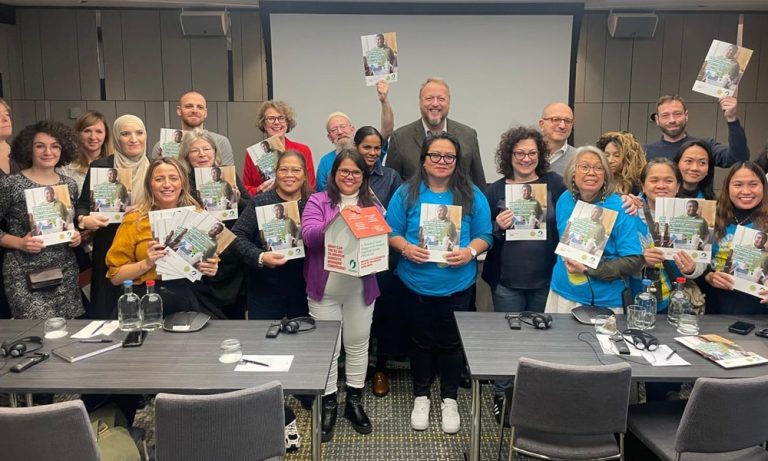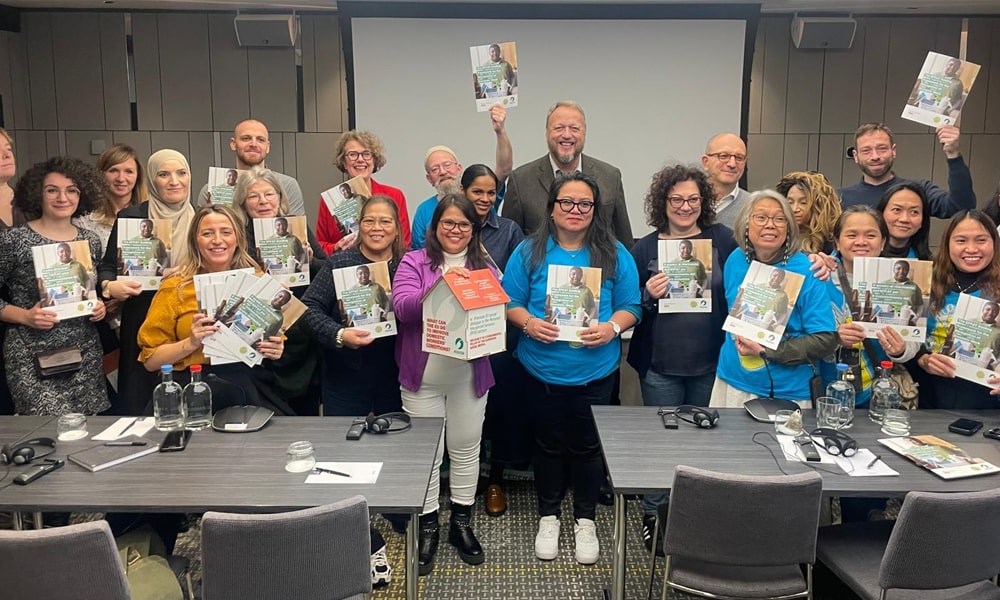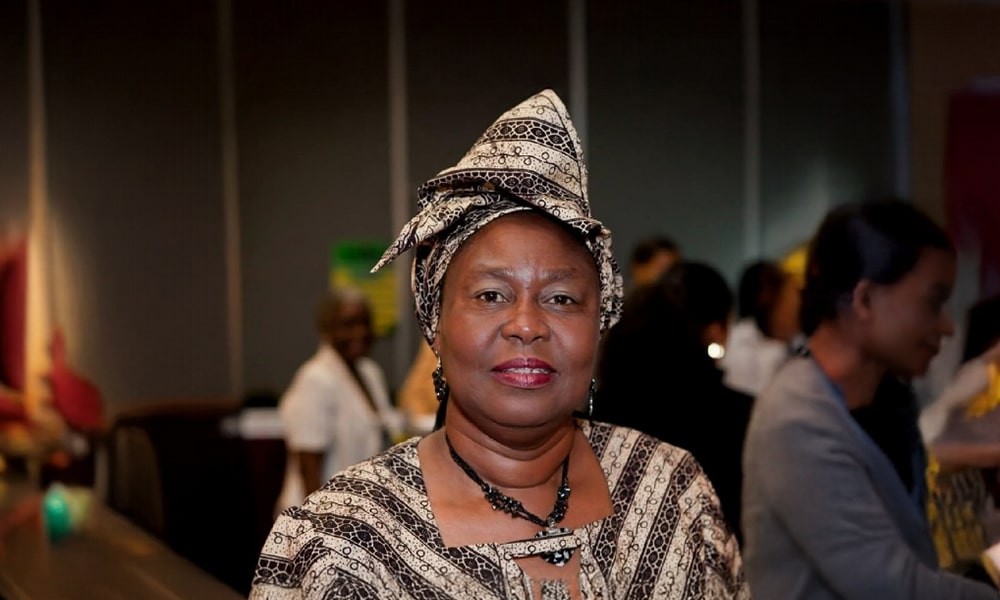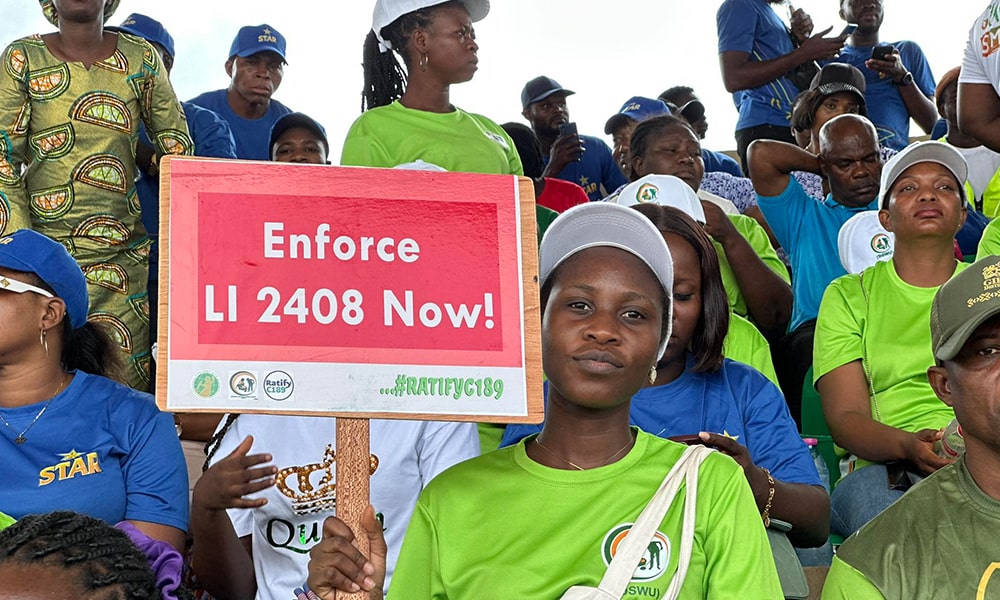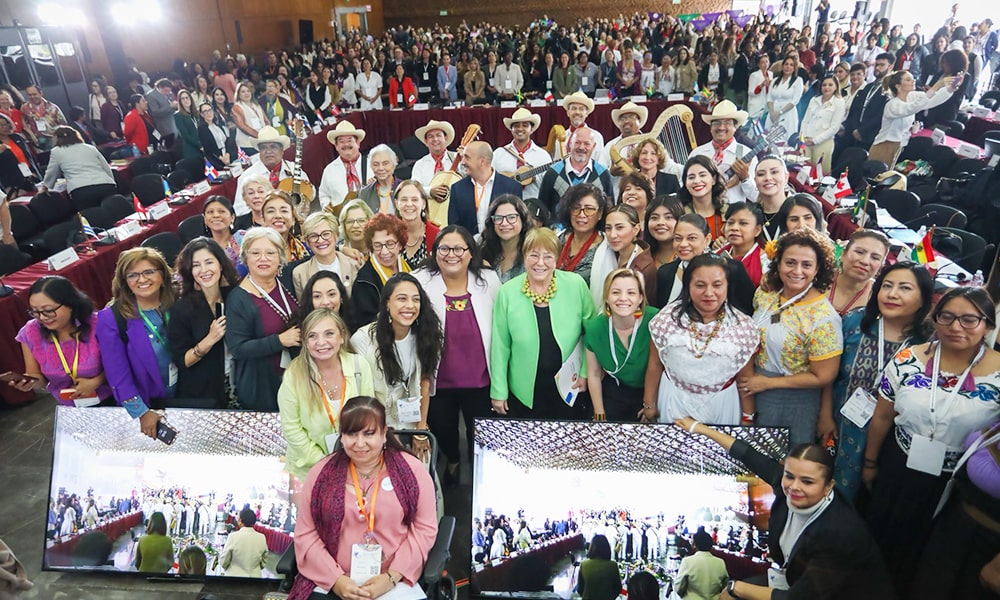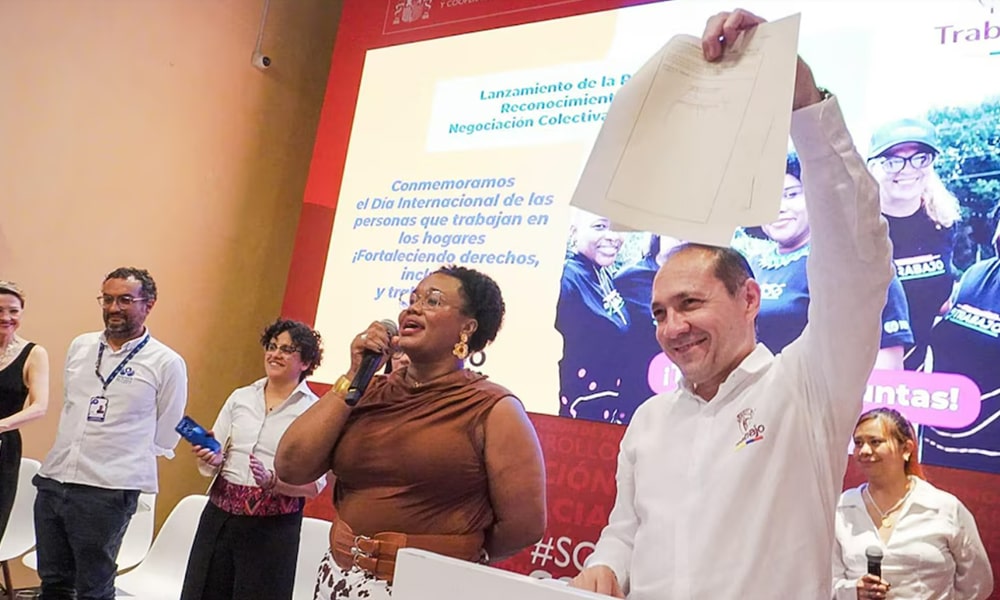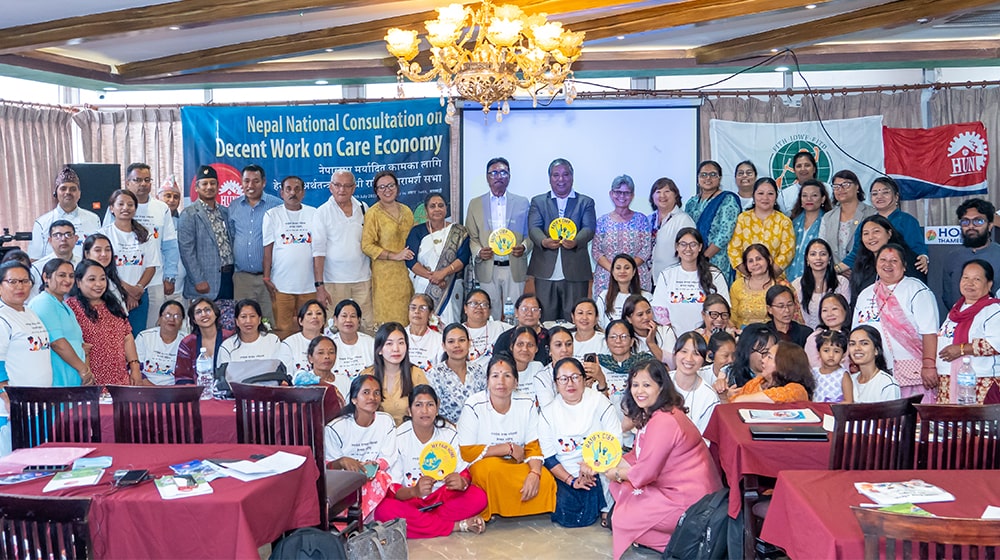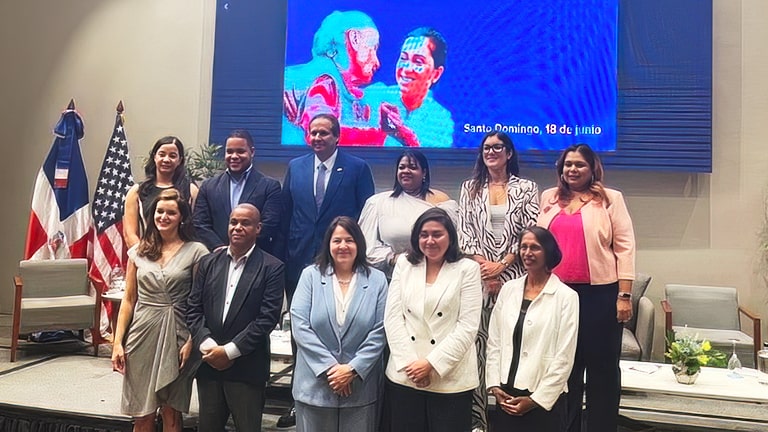
The National Federation of Women Workers (FENAMUTRA), led by Ruth Díaz, a member of the IDWF Executive Committee, is one of the organizations responsible for launching “Together We Care” in the Dominican Republic. This global initiative aims to improve the working conditions of care sector workers while ensuring the population’s access to quality care services. Nationally, the project also has the support of various government bodies and the participation of the National Union of Dominican Nursing Services (UNASED).
“Together We Care” is a groundbreaking initiative funded by USAID’s Gender Equity and Equality Action Fund, the Ford Foundation, and the CARE Fund, and implemented by UNI Global Union. They are joining forces with local unions in Ghana, the Dominican Republic, the Philippines, Brazil, and Colombia to empower workers through women-led trade unions, with an increased presence of care workers, to advocate for better wages, improved working conditions, and reduced workplace inequalities. This global alliance aims to promote structural changes in the care economy and ensure stronger care systems in key countries by fostering collective representation, advancing women’s economic security through bargaining, and creating safer and violence-free work environments.
The public health and care sectors in the Dominican Republic face significant challenges, such as low wages, insufficient legal and social protection, lack of resources, limited access to professional training, and the absence of inclusive and equitable policies. The “Together We Care” project will address these issues through various strategies, including training programs, investment in infrastructure, and the promotion of public policies that strengthen the health and care systems. FENAMUTRA will play an active role in implementing training workshops for caregivers, awareness campaigns on the importance of quality care, and pilot programs in several communities across the country.
“We need to raise awareness in society about the precarious conditions in which many care workers perform their jobs. They carry out essential tasks for society and should enjoy the same rights as any other worker,”
says Ruth Díaz.
This project is crucial for advancing the inclusion of the voice and representation of domestic workers in all public policies, legal reforms, and national care-related initiatives. Only through social dialogue and collective bargaining will it be possible for domestic workers to be explicitly recognized as care providers, adequately remunerated, valued for their skills and contributions to society, legally protected (and in practice) on equal conditions regarding other workers, and covered by social protection, including their right to receive care. We aspire to a world where care is considered a human right and a public good, translating into decent work, dignified living conditions, and access to quality care for domestic workers as pillars of the care economy.

